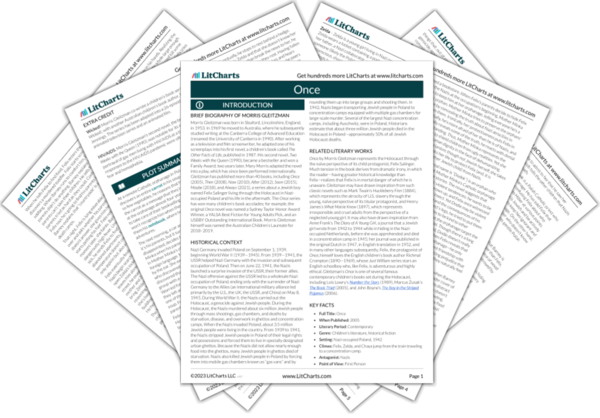Originally, Felix wanted to give the Nazi officer his story so the Nazi officer would help find Felix’s parents. Now, he gives the Nazi officer the story hoping to save Zelda. This shift shows how Zelda has become Felix’s family. Felix’s efforts here hold out hope that his love of storytelling, which the notebook represents, will manage to save a life—though the novel has repeatedly suggested that stories have limited power to change the minds of people committed to systemic evil, which may foreshadow that Felix’s attempt won’t succeed. Zelda’s assertion that the “Polish assistance” killed her parents, meanwhile, hints that she’s too young to understand what the Polish Resistance is.
